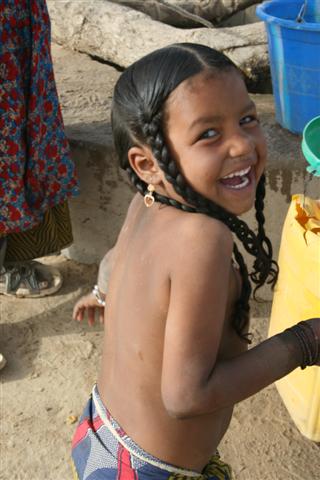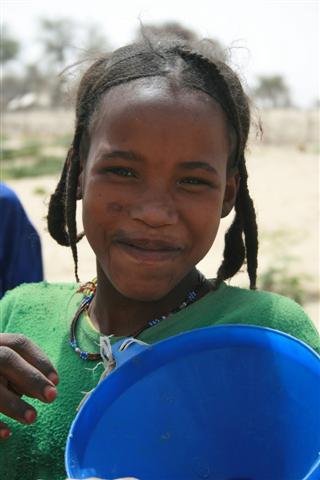Dear Friends of the Azawak,
I am relieved to report that my dear husband Denis has finally returned from Niger after spending the last month working with our local team in Niger. Fassely and I had to return home early due to the unbearable heat and a dangerous meningitis outbreak. Denis remained behind to finish up all the last minute work for Amman Imman in the field.
Several positive developments took place over this past month in Niger, but before I move ahead, please take a moment to note a new section on our website, which shares inspiring stories of our work both in the United States and in Niger:
www.waterishope.org/News_and_Events/stories_main.html.
Also, the Montessori schools are involved in several events at this time of year. You can read more about their “Walks for Water” and “Amman-a-thons,” here:
A Walk for Water and Amman-a-thon.
Update on the Montessori Well of Love Borehole:Our progress on the construction of the “Montessori Well of Love” borehole continues. Amman Imman’s whole cost structure and budget for borehole drilling is based on certain fixed prices – labor, materials, drilling and so forth. With spot uranium prices at a record high, world demand over the next 10 years along with the recent economic crisis have spotlighted uranium-rich Niger. Overnight we have witnessed one of the poorest countries in the world transforming to become the second largest uranium producer in the world. Because of this uranium boom plus new oil well drilling, contractors have their pockets bulging with new money. Prices for drilling have quadrupled since the Tangarwashane borehole was completed in 2007, and our small budget is simply no longer competitive with the huge multinationals who can literally throw money into the ground to reach the riches beneath.
Despite this news we remain resolute and committed to our goal of bringing clean and sustainable water to the poorest region of one of the poorest nations on earth. All along we have been working diligently at developing partnerships with powerful NGOs and other organizations that have entered collaborative arrangements with us. Furthermore, even though the money is speaking so forcefully, personal relationships do still count for a lot. A week before Denis left Niger, a good friend of ours that had stopped working for the largest drilling company in Niger – Foraco -- has recently been reappointed with a promotion. Our friend was very upset that we had not been offered a good price quote and intends to help us obtain an affordable price as soon as a drilling machine becomes available.
Since drilling has been put on standby, Denis refocused his energy on our very crucial field work. Most importantly, Denis held capacity building workshops with our local team in Abalak and continued follow-up work with the Tangarwashane Management Committee. Denis has also been successful in developing partnerships with non-governmental organizations that are either already working, or plan to work in the Azawak soon. These organizations include: International Relief and Development (IRD), Africare, the French Embassy, Jemed, and CARE International. And finally, Denis and our local team visited several more potential villages including Izelig, Tchinwagari, and Tassnala where we may work in the future.

The Amman Imman field team: Moumine -- local representative , Denis -- Niger Program Coordinator, Amamatou and Jalal -- field agents
Here are highlights of Denis and our local team’s current work in the field:
International Relief and Development (IRD) comes to Tangarwashane Bearing TreesThe international non-profit organization IRD began working in the Abalak region of the Azawak a few months ago. As soon as we heard of IRD’s presence in Abalak, Denis and I met with their local representatives to tell them about Tangarwashane. We pushed for them to consider working in the village to conduct revenue generating activities, as well as initiatives to protect the environment. We were thrilled to hear that they ended up choosing Tangarwashane as one of their intervention sites. We are currently working with IRD to choose future sites together, as partners.
IRD’s first project is to reforest the area around the borehole and to protect the land as more and more people and animals come to fetch water. It has already begun building a nursery to grow 500,000 trees, and has set up a management committee to ensure that the program succeeds. The NGO could not consider doing this work if there weren’t the borehole to provide the water for the nursery. Once this project is well established, IRD plans on rebuilding livestock herds and financing agricultural training.
It is only with this type of aid that communities throughout the Azawak can flourish. When bringing water to a community, one of Amman Imman’s core principles is to partner with other organizations that can bring other forms of help, including food, health, and education. These secondary projects are vital and life supporting and their success depends greatly on the boreholes we initially drill.
We are pleased to report that our effort has been highly effective. Since we built the Tangarwashane borehole, a functional school with 20 students has been created by the government; adult classes are being offered to men and women through a local NGO called At’cool; and now environmental measures are being established to protect the land surrounding the borehole. With IRD’s help, and the eventual presence of other organizations with which we are developing partnerships, I feel certain that little by little health, agriculture and livestock programs will come to Tangarwashane. Eventually aid will sprout and take root throughout the Azawak, thereby permitting this destitute region to flourish.
A Borehole to Last Forever…Pristine water now flows in the Azawak village of Tangarwashane. When our Amman Imman team returned to the village this February, after more than a year away, we proudly drank the water and admired the borehole. I was able to speak with many nomads passing through, and upon witnessing their joy at finally having clean drinking water I beamed with happiness, for so many lives had been improved. The meters and counters on the faucets showed that many people were drinking from its fountain. Every report we had gotten from the department of hydraulics and our local team members had been true: the Tangarwashane Borehole is now a true blessing to many thousands of people and animals.
But for how long?
The life and duration of a borehole depends on how well it is financially and technically managed. After long discussions with Alhassan, Hakami, village leaders and members of the management committee including women such as Raichatou and Sadouan, we arrived at a crucial realization. The members of the Tangarwashane management committee need and want a good deal of follow up training. We are precisely positioned to give them this long-term support until they feel comfortable managing the borehole on their own.
 Amamatou and Jalal training Tangarwashane Management Committee vice president, Yacoubou, and treasurer, Raichatou
Amamatou and Jalal training Tangarwashane Management Committee vice president, Yacoubou, and treasurer, Raichatou how to maintain financial records
To begin fulfilling our promise, we hired three people locally to provide training and assistance twice a month in Tangarwashane and our future sites. We created our own version of a management school, which also provides special support to women to help them increase their voice and role within the committee and community in general. Eventually, the committee will become independent and will no longer require our support. This process may take anywhere from months to years to achieve. But our village communities and Amman Imman are a team united in a common goal: that water will flow for generations and generations, and that communities will grow and thrive. Amman Imman is there to make sure that this happens.
 Amman Imman field agent, Amamatou, speaks to women in a camp near Tangarwashane about the borehole, as well as hygiene and sanitation
Amman Imman field agent, Amamatou, speaks to women in a camp near Tangarwashane about the borehole, as well as hygiene and sanitation
The fruit of our labor is already evident. Only one month after reinstating “training classes” for the management committee, it raised $400 from selling the water to both the local community and nomads using the borehole. Raichatou, the treasurer, traveled to Tahoua last week with her husband in order to open up a bank account where the committee will keep the money earned for the maintenance of the borehole. The local representative from the department of hydraulics, Abdoulkarim, has agreed to sign off whenever money is taken out in order to ensure that the money is spent exclusively for borehole maintenance and repair.
May water flow EVERYWHERE in the Azawak:During Denis’ last visit in the field, he and our local team – Moumine, Jalal, and Amamatou --visited many villages. Of particular interest was the village of Tchinwagari where a borehole was recently built by UNICEF thanks to a proposal Amman Imman submitted to them in 2007. The villagers were very grateful for our help getting the borehole, but they wanted more. Since UNICEF no longer operates in the region, they were now turning to us for help. Their management committee had only received one day of training from the Tchintabaradene department of hydraulics, and they felt uncomfortable managing their borehole properly both technically and financially.

Moumine, Denis, Amamatou, and Jalal in frount of the Tchinwagari water tower
Since our goal is for potable water to flow throughout the Azawak, and whatever we do to support this is part of our prime directive, we decided to honor their request. The local Amman Imman Management Team will conduct bimonthly visits to Tchinwagari to conduct follow-up training and assistance with their borehole management committee members. Our female employee, Amamatou, will also be educating the women of the village on hygiene and sanitation. Additionally, she will be doing the crucial work of fighting for these women to gain a voice within their borehole’s management committee. In fact, our team conducted their first training session this weekend, and as a result, three women were appointed to the management committee.
Thank you for your continued support for Amman Imman and the people of the Azawak. And I send out a very special thank you to Denis, Moumine, Jalal, and Amamatou for their hard work in the field!
Together, we are making a difference!
Yours for the Children of the Azawak,
Ariane
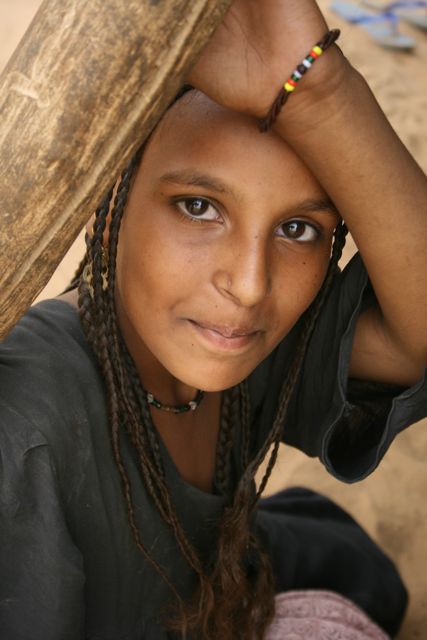
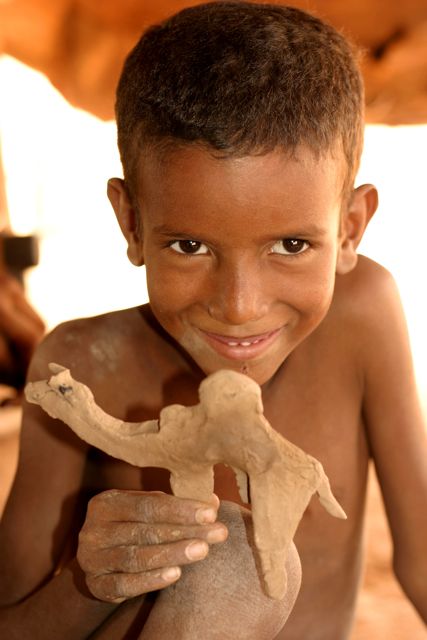
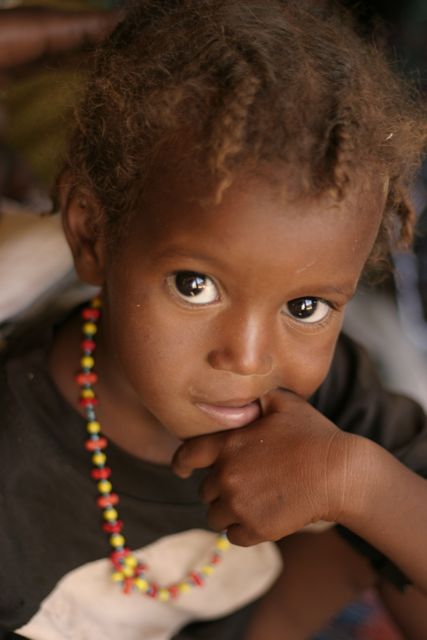

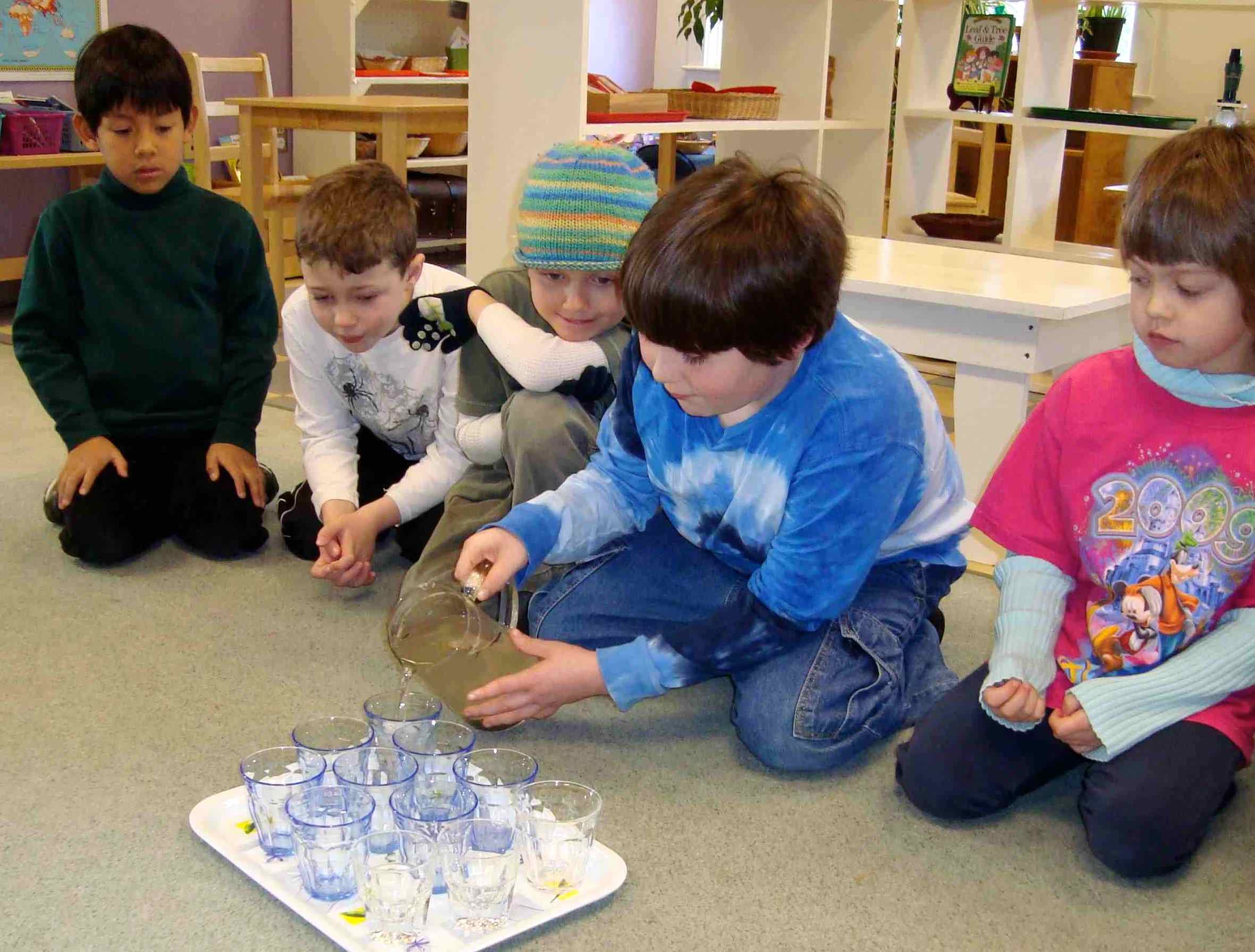 Odin made a presentation, bringing a tray with 18 clear glasses to his circle of classmates. Everyone drank a glass of water. Next, Odin shared the struggles that the people of the Azawak endure by reading aloud the book Amman Imman - A Story. The story of these beautiful people, living without the dignity of having water to drink, unfolded to the children through the simple and compelling words and photographs.
Odin made a presentation, bringing a tray with 18 clear glasses to his circle of classmates. Everyone drank a glass of water. Next, Odin shared the struggles that the people of the Azawak endure by reading aloud the book Amman Imman - A Story. The story of these beautiful people, living without the dignity of having water to drink, unfolded to the children through the simple and compelling words and photographs. I chose this project because I believe that helping others less fortunate than ourselves is not merely an option, but a necessary course of action. It’s important to give back to the global community, particularly if you are born in a society that supplies you with both basic needs as well as whims. Some people wonder why I’ve chosen to help Amman Imman when there are humanitarian issues so close to home. My answer is simple: people in the Azawak aren’t getting help from anyone else. Specifically, I am addressing the Azawak’s desperate need for water. It’s a simple concept, really. The residents of that area have no water for ten months out the year, so I say let’s give it to them! Saving lives is an amazing thing, and by advocating for AI and helping to fundraise, I am helping to do just that.
I chose this project because I believe that helping others less fortunate than ourselves is not merely an option, but a necessary course of action. It’s important to give back to the global community, particularly if you are born in a society that supplies you with both basic needs as well as whims. Some people wonder why I’ve chosen to help Amman Imman when there are humanitarian issues so close to home. My answer is simple: people in the Azawak aren’t getting help from anyone else. Specifically, I am addressing the Azawak’s desperate need for water. It’s a simple concept, really. The residents of that area have no water for ten months out the year, so I say let’s give it to them! Saving lives is an amazing thing, and by advocating for AI and helping to fundraise, I am helping to do just that. 






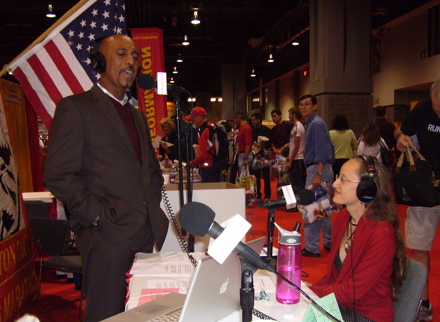

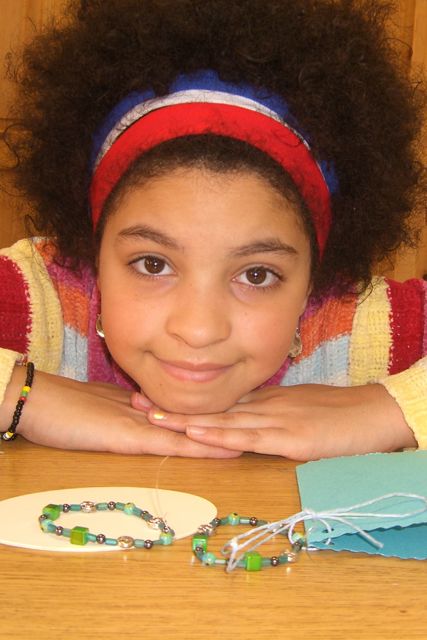 or our student Heroes of Compassion to use art as a means to help their brothers and sisters in the Azawak. Here’s how it works: Wells of Love schools choose a craft project that students can make using their own hands. Students then sell their handmade crafts in their school and community to raise money for their Well of Love. These handcrafted gifts symbolize the growing friendship between the two cultures as they walk hand-in-hand toward love and hope.
or our student Heroes of Compassion to use art as a means to help their brothers and sisters in the Azawak. Here’s how it works: Wells of Love schools choose a craft project that students can make using their own hands. Students then sell their handmade crafts in their school and community to raise money for their Well of Love. These handcrafted gifts symbolize the growing friendship between the two cultures as they walk hand-in-hand toward love and hope.

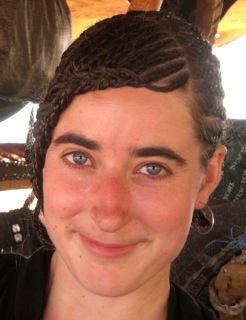


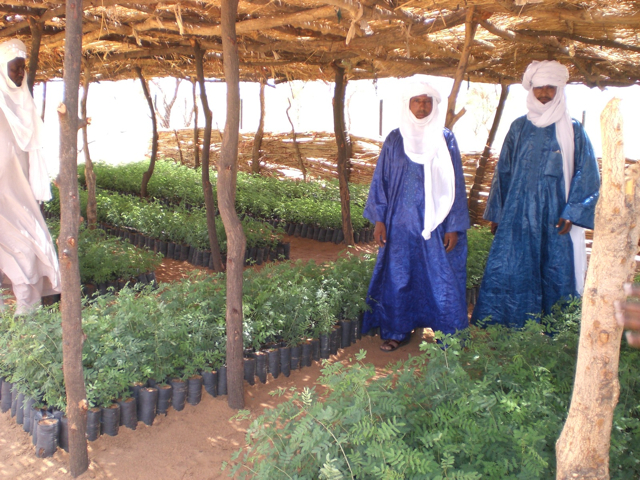 photos of happenings I only dreamt of three years ago. Most impressive is the creation of a Gum Arabica forest from the tree nursery with the help of International Relief and Development (IRD). Julie's footage shows the villagers from Tangarwashane digging parcels to plant their trees, which the families will then use for commerce by selling the sap. IRD and the national government are also helping to improve the population's food security by working with women to build up livestock herds and run a cereal bank. As IRD claims, none of these developments could have taken place without the borehole.
photos of happenings I only dreamt of three years ago. Most impressive is the creation of a Gum Arabica forest from the tree nursery with the help of International Relief and Development (IRD). Julie's footage shows the villagers from Tangarwashane digging parcels to plant their trees, which the families will then use for commerce by selling the sap. IRD and the national government are also helping to improve the population's food security by working with women to build up livestock herds and run a cereal bank. As IRD claims, none of these developments could have taken place without the borehole. 






